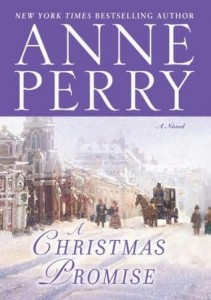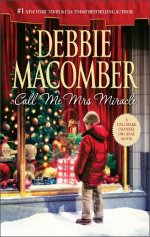Blogger: Wendy Lawton
Location: Working Retreat–Angel’s Camp, Calif.
Our assignment this week was to choose our favorite Christmas novel (or novella). Hmmm. I’ve loved Christmas short stories and books ever since my days as a preteen when I would eagerly await the December issue of Good Housekeeping magazine in order to read the Christmas fiction. But to pick a favorite. . .
Many Christmas stories are like candy canes. They melt in your mouth, leave a lingering freshness but are soon forgotten. I’ve read several novellas like that recently. Others, like O. Henry’s Gift of the Magi have become part of the fabric of Christmas.

But favorite(s): I read Anne Perry’s Christmas novel each year. Hers are not the feel good novels we come to expect at Christmastime. She writes Victorian England like no other since Dickens. Her last year’s Christmas novella, A Christmas Promise,was my favorite. It is the story of thirteen-year-old Gracie Phipps–whom we’ve come to know from Perry’s Thomas Pitt novels–as she is caught up in eight-year-old Minnie Maude’s quest to find her missing donkey and discover who killed her uncle, a rag and bone collector. The two girls make their way through the mean streets of Whitechapel with the help of the mysterious Balthasar in a search for the golden casket that may solve the mystery. Her stories are always true to the period and we only glimpse a Currier & Ives kind of Christmas through the eyes of the outsiders.
A whole different kind of Christmas novella is the more traditional stories told by my friend Debbie Macomber. I just finished reading Call Me Mrs. Miracle and loved it. It has all the elements we love—a hero who no longer believes in Christmas, a heroine who believes with her whole heart despite the challenges she faces trying to provide the perfect Christmas gift for the nephew left in her care and a meddling angel of a character–Mrs. Miracle–who makes magical things happen.
and loved it. It has all the elements we love—a hero who no longer believes in Christmas, a heroine who believes with her whole heart despite the challenges she faces trying to provide the perfect Christmas gift for the nephew left in her care and a meddling angel of a character–Mrs. Miracle–who makes magical things happen.
It’s a delight from beginning to end.
The book has already been made into a Hallmark Channel movie. It was the highest rated Hallmark Channel telecast of the year. It was also the #1 prime time cable program of the day and the #1 rated movie of the week. I have to say, though, that the book is even better than the movie.
So I give you two different favorite novellas. One traditional, the other strictly historical. One that leaves the reader looking for Christmas miracles, the other that heightens us to the plight of children–both past and present–who barely eke out enough to fill their bellies except on Christmas. Both are part of the season. And I recommend that both be read and enjoyed.
Here’s a question for you: Is it important for a writer to find that balance between creating a heartwarming story–like O. Henry’s Gift of the Magi–and being honest about the realities of poverty and need? If you were to write a Christmas novella, where would it fall?
Speaking of the realities of poverty and need. . . I have an online Salvation Army Red Kettle. I’d be so very appreciative if you’d be willing to drop in a tuppence or two for those in need this Christmas. (Picture me ringing the bell here.)

Wendy, after reading your first paragraph, I was going to mention O. Henry’s “Gift of the Magi,” but then you beat me to it. Although his “The Cop and the Anthem” doesn’t mention Christmas, it takes place after Thanksgiving, and I’ve always pictured it as Christmas. One story leaves the reader inspired by the human potential for selfless love, and the other shaking one’s head over the ironic futility of it all. In a collection of stories, individual pieces can go off in one direction or the other, and the whole volume achieves balance. In volumes with a single story, individual characters can carry the different messages.
At 12 or 14, I read O. Henry’s complete works, and several stories multiple times. It was a favorite book of my father’s, and he read them to us at bedtime. I look at the level of vocabulary now and wonder how as small children we could ever follow the stories. I’m sure my father must have stopped often to explain things. When I try to read them with students now, the language is too far over their heads. It’s a shame. For Christmas, I wish I could go around doubling or tripling my students’ vocabulary.
Brian, I wish we could get kids to get interested in collecting words with as much enthusiasm as they collect other things. It really does give them an edge– and think how much they like one-upsmanship.
But you’re right. Reading is what stretches us in every way. Bless your father.
Reading these past two posts, I’ve realized that I haven’t read that many solely Christmas novels or novellas. Most of the Christmas stories I’ve read are either biblical or children’s books. I’ve read a number of other novels, but not Christmas-focused. I did enjoy the Mitford series’ Christmas book. And you guys are providing some great recommendations!
As for your question, a think a balance is necessary and realistic. That realistic perspective can bring light to situations others may not have pondered, and yet the stories can still include abundant hope.